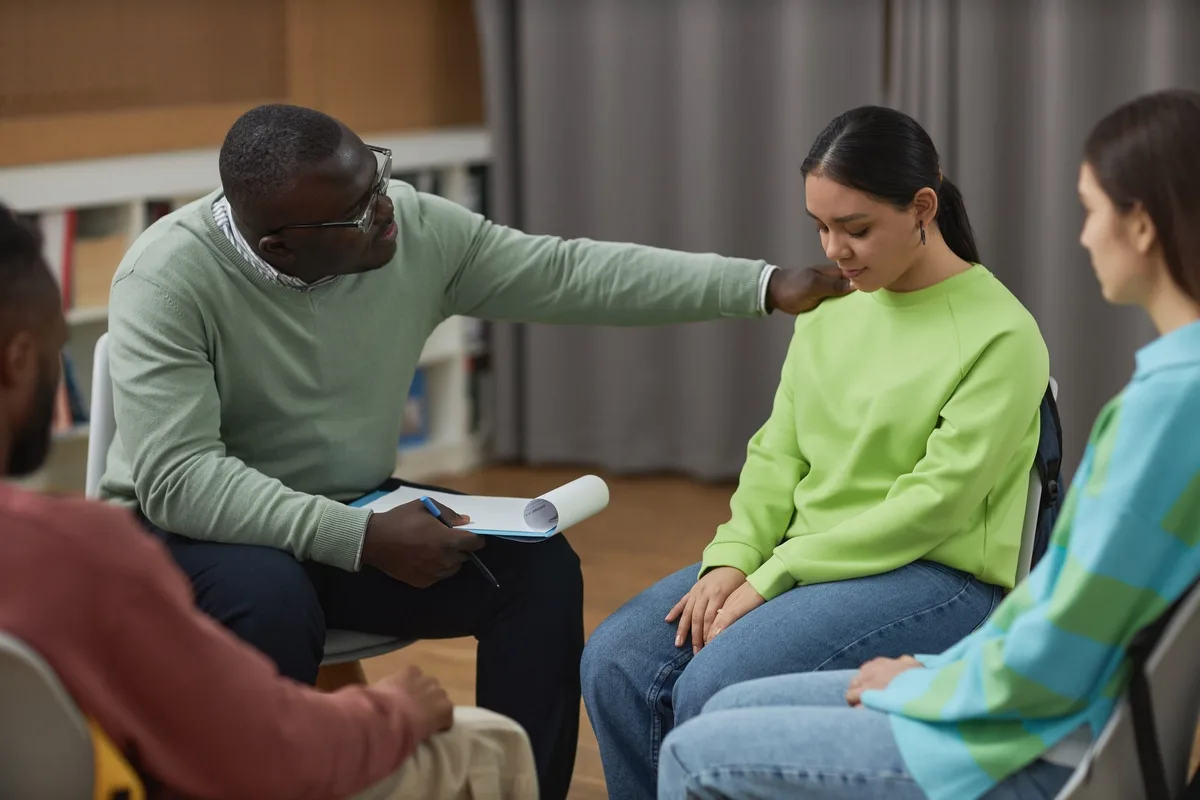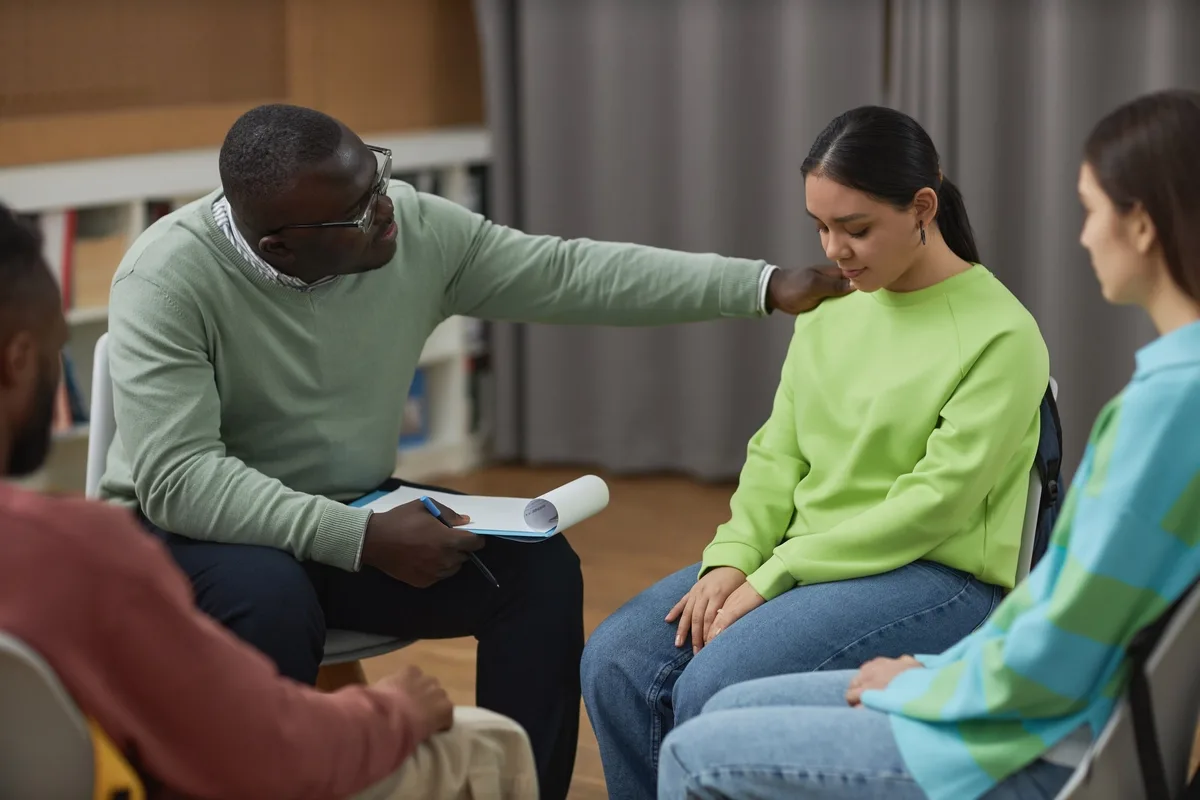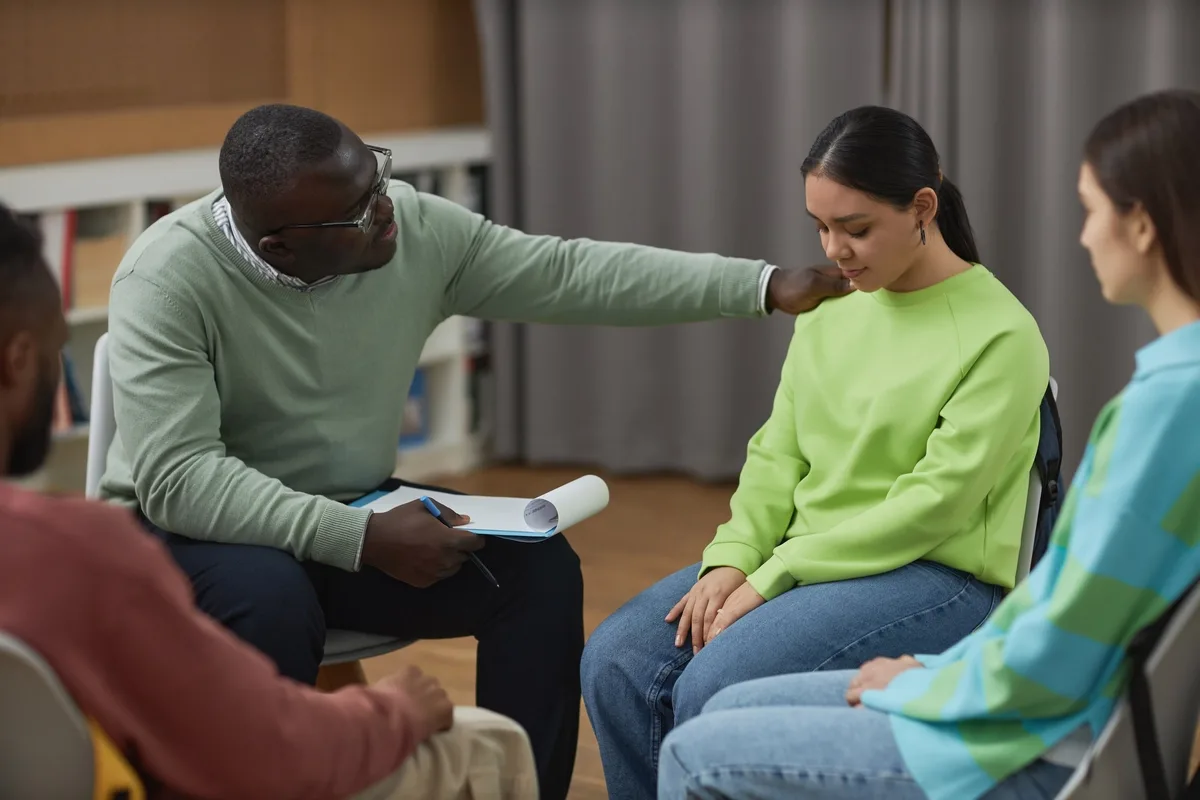24/7 Helpline:
(866) 899-221924/7 Helpline:
(866) 899-2219
Learn more about PTSD Rehab centers in Coweta County

Other Insurance Options

Humana

Evernorth

Health Partners

Regence

Cigna

Health Net

CareFirst

Magellan Health

Multiplan

ComPsych

Ceridian

Ambetter

UnitedHealth Group

Optima

AllWell

Highmark

BlueCross

Choice Care Network

EmblemHealth

Medical Mutual of Ohio

Center of Renewed Promises
Center of Renewed Promises is a private rehab located in Newnan, Georgia. Center of Renewed Promises...

S and T Assessment and Counseling Service
S and T Assessment and Counseling Service is a private rehab located in Newnan, Georgia. S and T Ass...

Grace Harbour
Grace Harbour is an outpatient mental health clinic that serves individuals from all ages in a holis...









































Pathways Center
Pathways Center is a public rehab located in Newnan, Georgia. Pathways Center specializes in the tre...

Treatment Center of America – Newnan
Treatment Center of America – Newnan is a private rehab located in Newnan, Georgia. Treatment Center...

AA – Alcoholics Anonymous
AA – Alcoholics Anonymous is a non-profit rehab located in Newnan, Georgia. AA – Alcoholics Anonymou...























































































